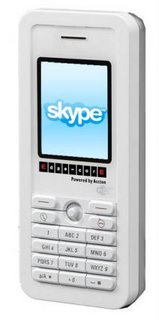My
Linux journey started at the tail end of 1995 when I wanted to try something besides
MS Windows and
IBM OS/2. A few of us were talking and one suggested Linux - which was still pretty low on the radar. I sat in the basement of a friends house and watched him use X Window and
CSH scripts and my life hasn't been the same since!
I can't remember where I got my first CD - or maybe it was a bundle of floppies - but I remember that it was the
Slackware distribution. How many times had I installed this new OS onto my system - how many hours had I lost trying to learn what all these esoteric names meant and how or why I should install them? I was in geek-heaven! Getting X Window
XFree86 up and running was a multi-day affair and when I finally got it to work, I was nearly in tears I was so happy. I purchased
Motif and moved between that and
FVWM. But the GUI was just the workspace to hold, literally, dozens of
xterm or
rvxt terminals. I discovered the command line through sh and then
bash, and was delighted that I could do more in a single line than any MS Windows user could do with expensive applications.
I was addicted and delighted.
My journey would take me to most of the large-name distributions - but I became a long term
Debian user. I just loved dpkg and then
apt-get. Sure I tried
rpm but back then it was the same old frustrating operating system upgrade circle that I hated from MS Windows and IBM OS/2.
Being a database geek in a corporate world I soon found that I had to live within MS Windows for a desktop, options were very limited. There was no
Postgresql or
Mysql, at least not at a comfortable enterprise level to use for small projects.
Oracle RDBMS was my database of choice but that would not run on Linux for some years, but my servers ran a wide rang e of un*x environments. The client side tools were native MS Windows code - no
Java yet.
This just allowed me to use Linux in various server-specific installations but rarely on the desktop. A file server here a firewall there - Linux excelled.
Jump ahead to present and you can see a different world. Linux is not only accepted but posted as the poster child of many companies - enterprise products either work on Linux or don't have a place. What IT shop doesn't have a single Linux server (or dozens)? My addiction is catching on it seems.
At my present work environment we made a choice early on - no exposed MS product outside the firewall. This means only hardened Linux boxes or appliances. It was an easy and comfortable choice. We are porting our database to Oracle RDBMS on a Linux operating system - my decision, one that I have a proven track record for success as well as financial incentives. There is even an initiative to move the whole office to Linux - now shit like that excites me!
My laptop is now running
Ubuntu Linux - and I'm still using apt-get and xterms but on top of
GNOME.
This addiction of mine has not slowed down and I don't expect it too.

